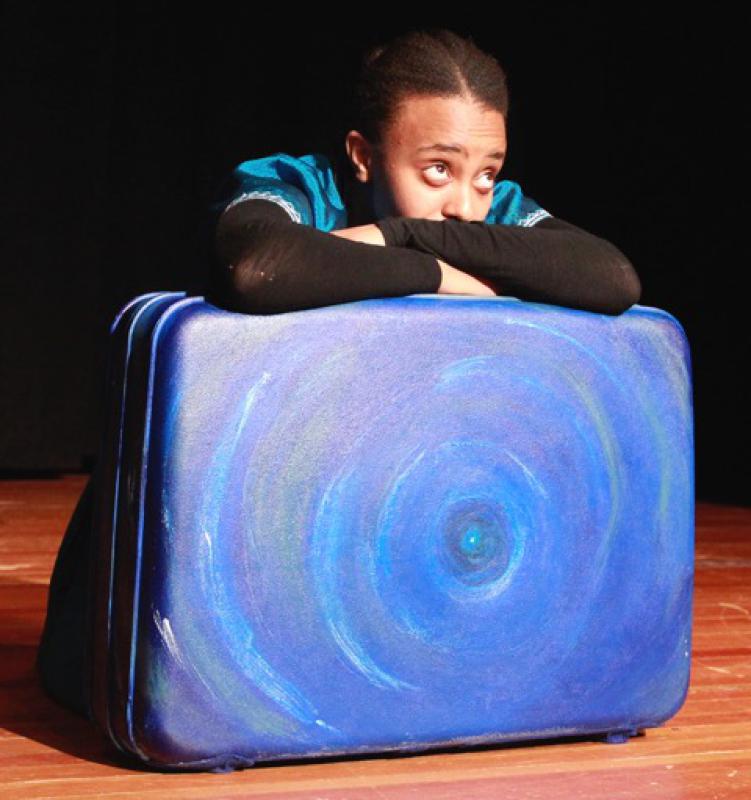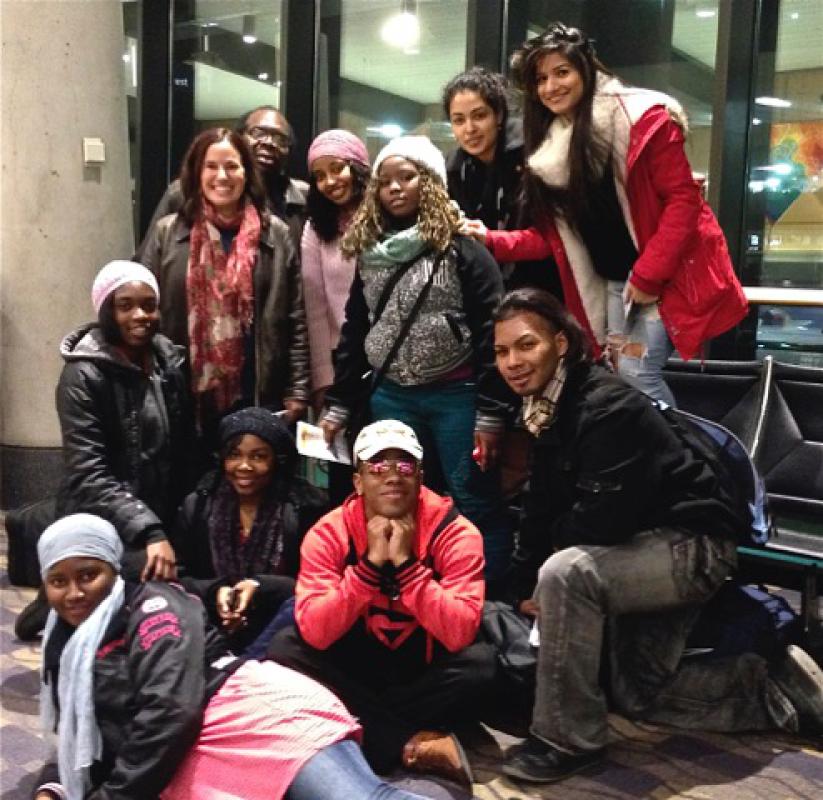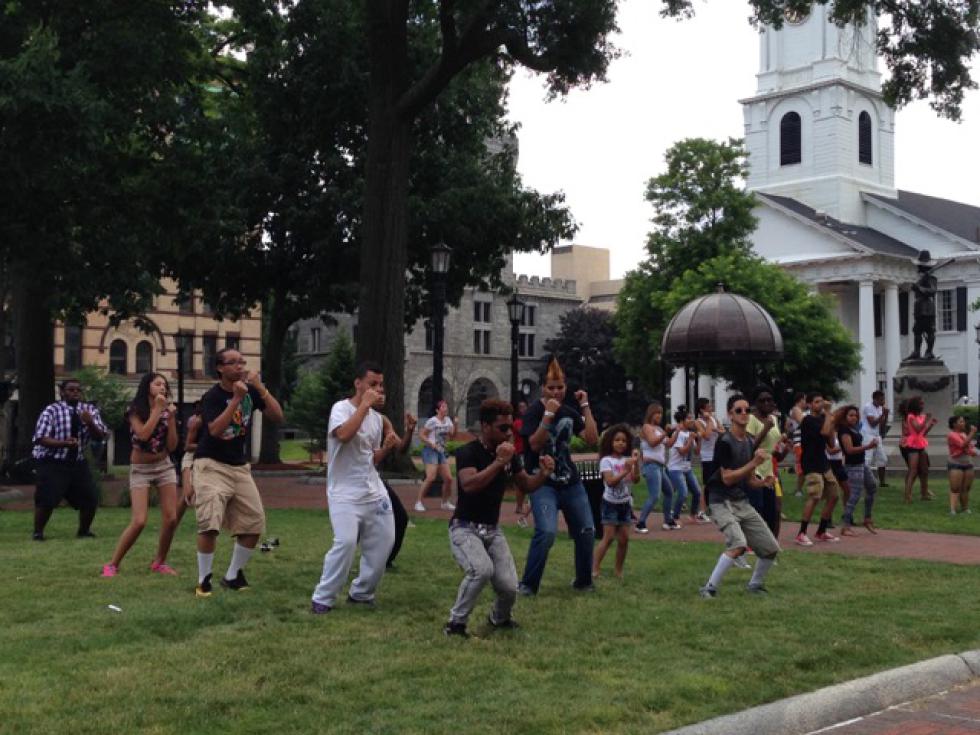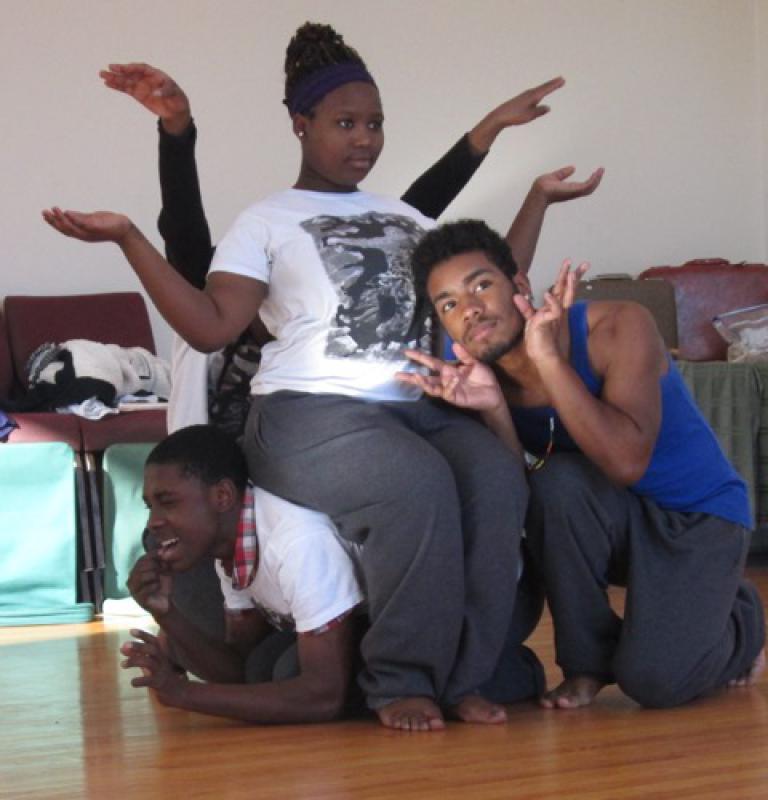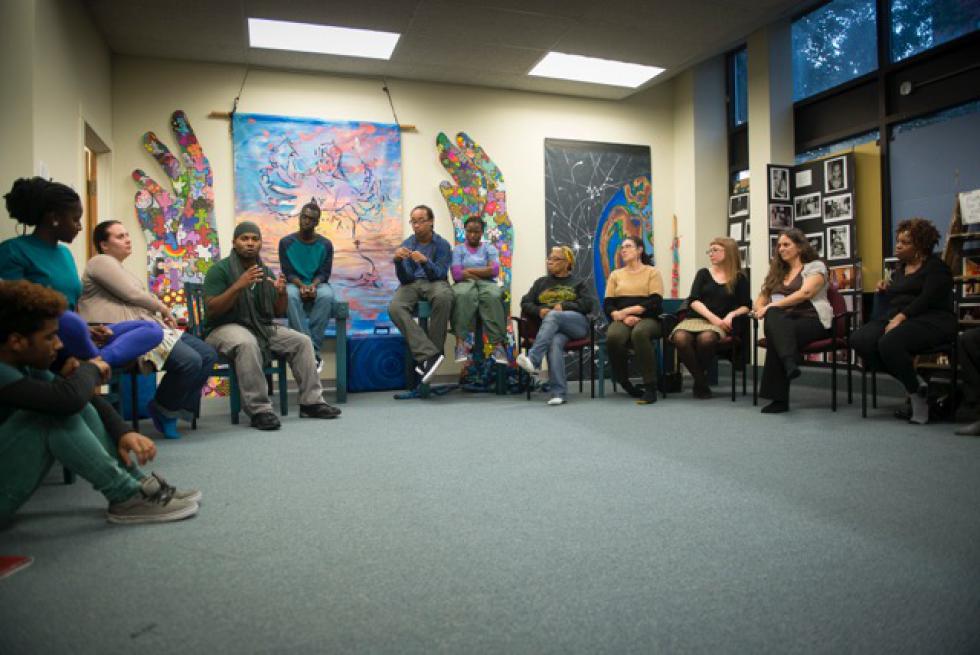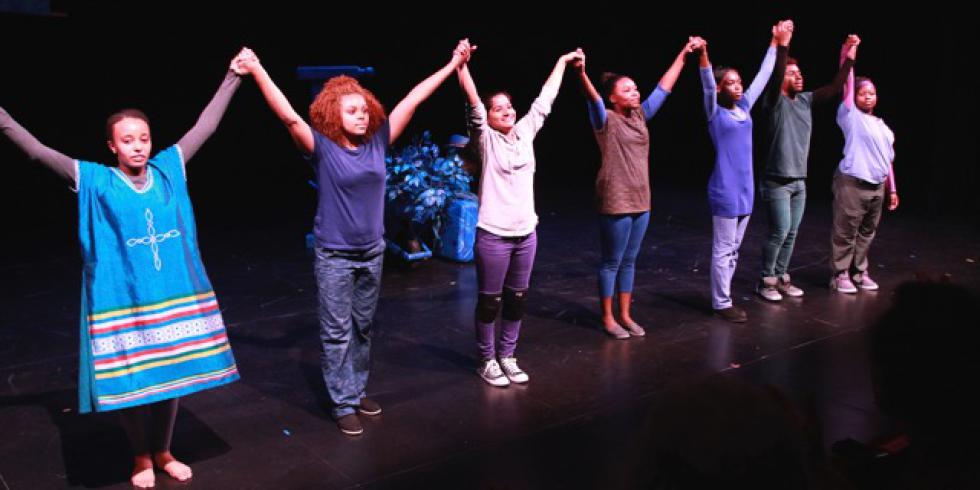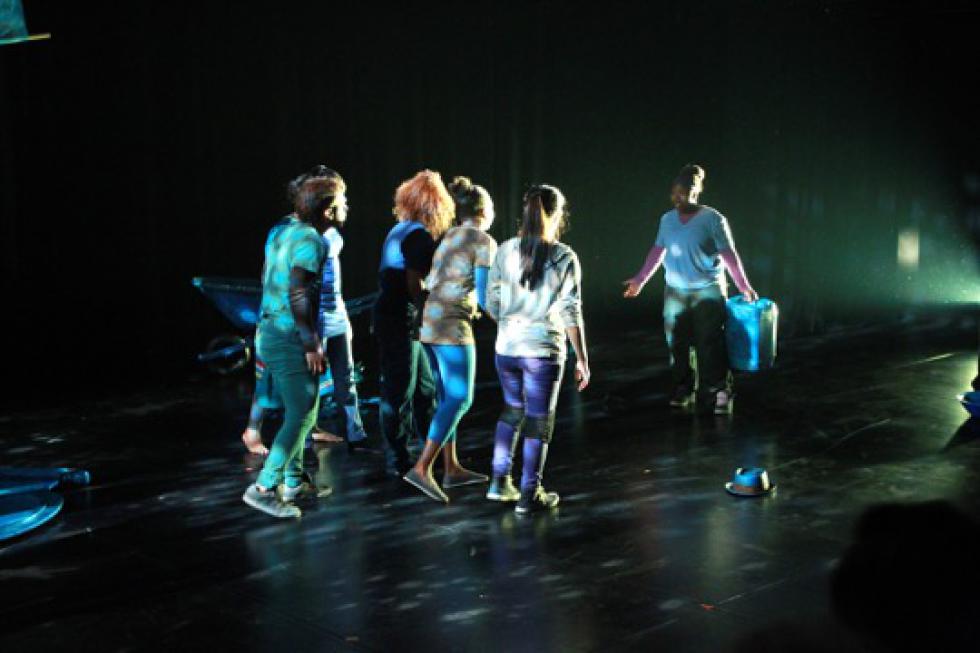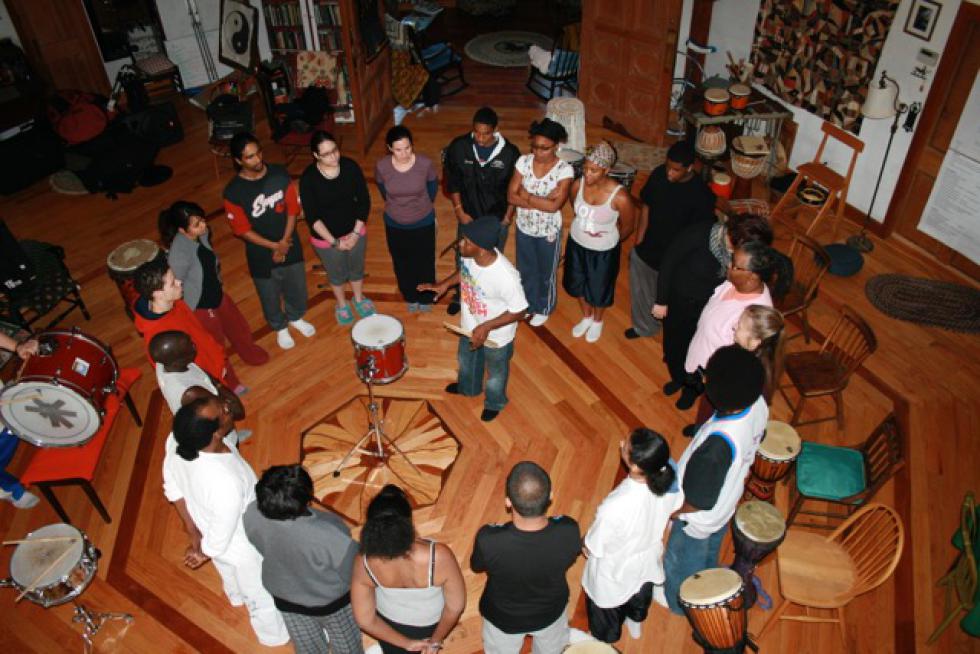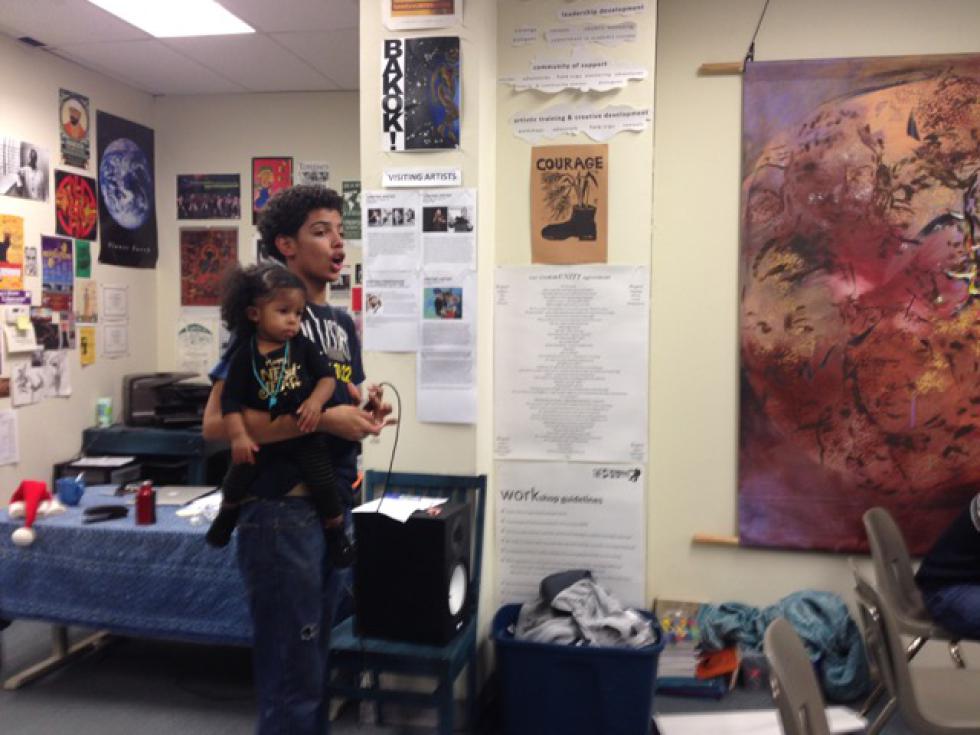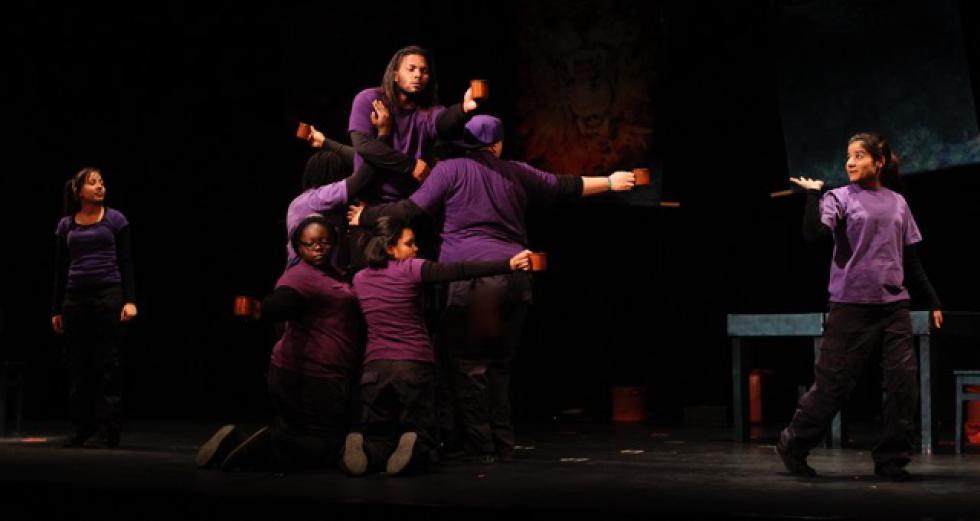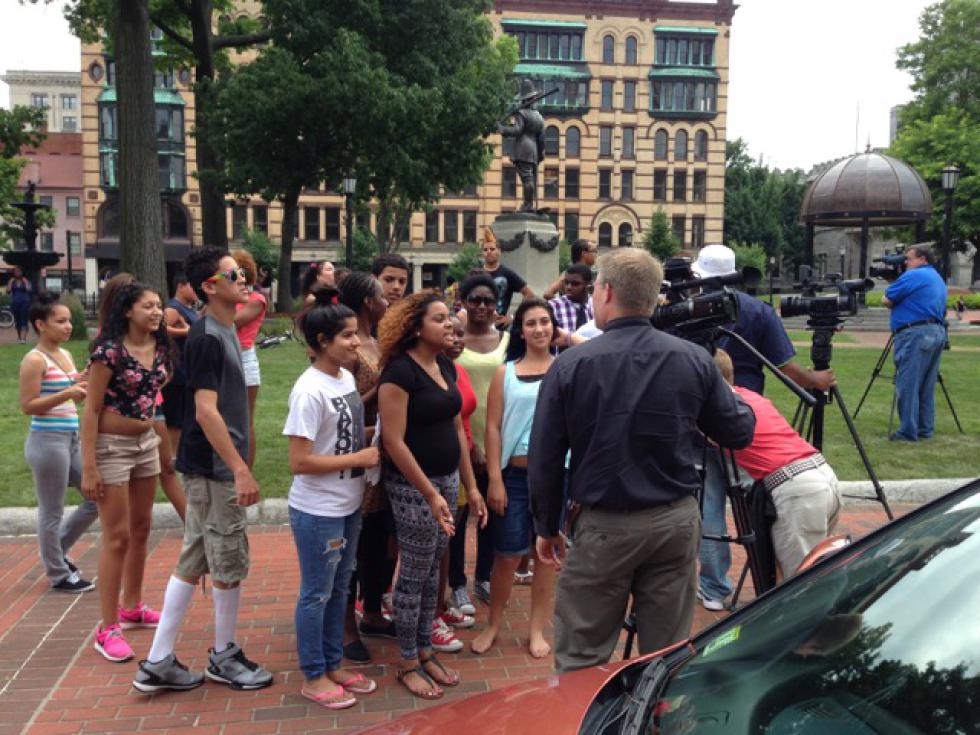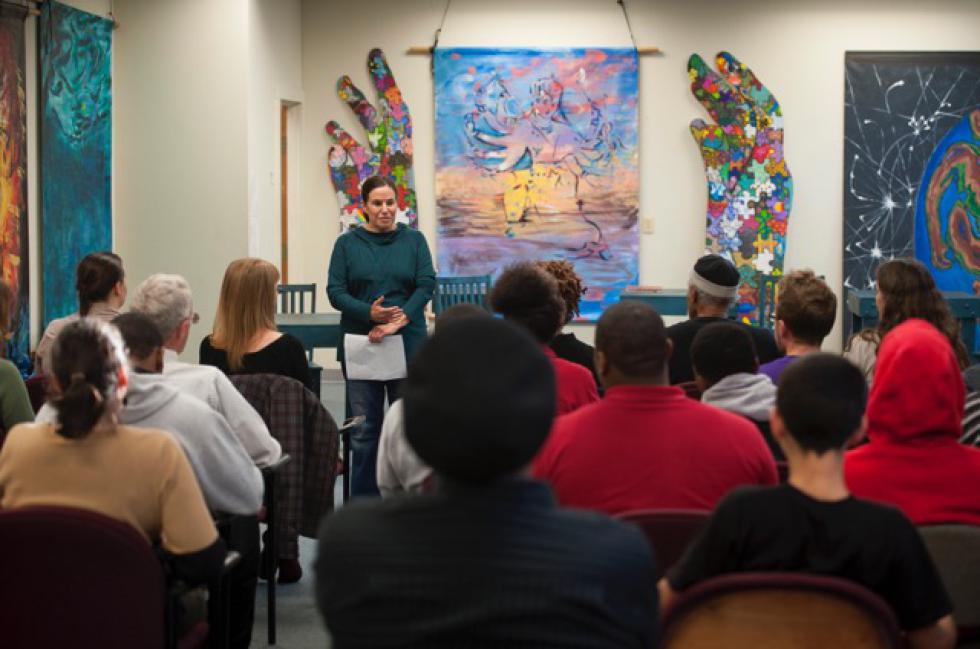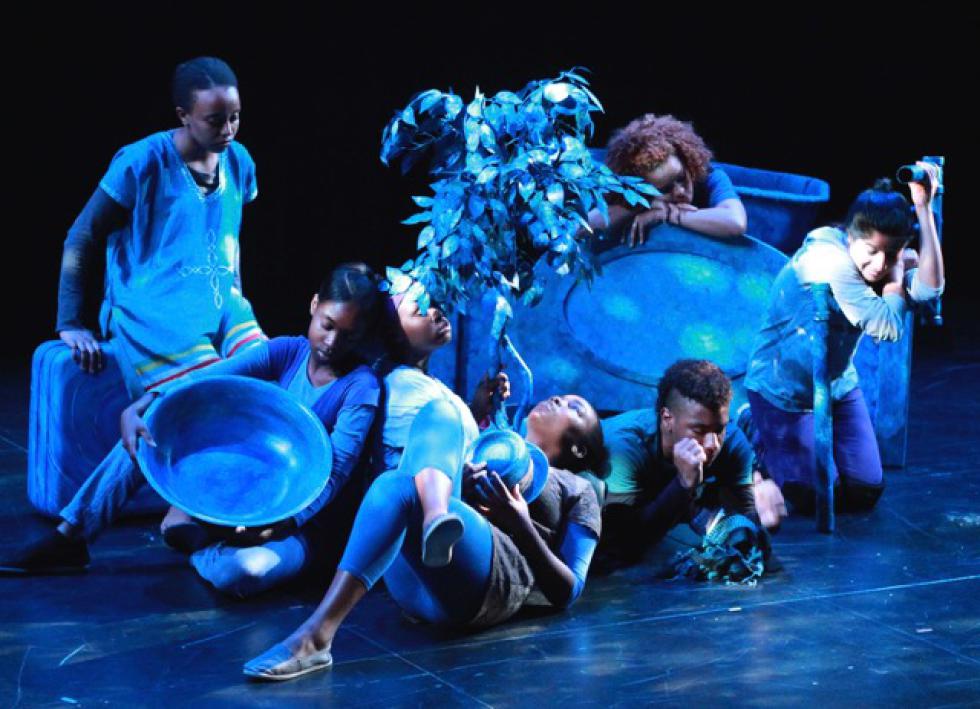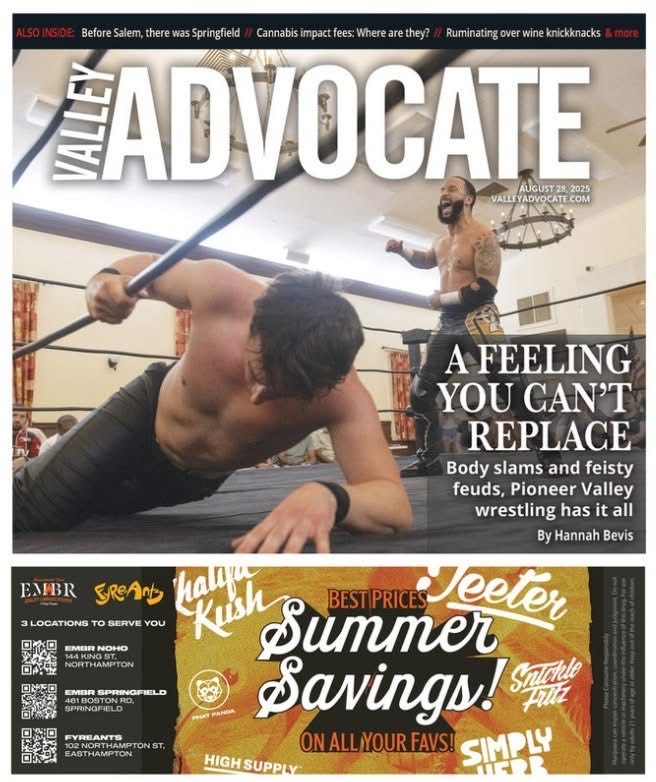It’s the kind of story we will, inevitably, hear again. When any big development imposes a new footprint on an already-established area, people get displaced and property changes hands. Five Taylor Street, in Morgan Square, where Springfield nonprofit arts organization The Performance Project has pursued its First Generation youth program for two years, is being sold. The Project is losing its home, and doesn’t have a new one.
Managing and Artistic Director Julie Lichtenberg draws the line clearly: “I can’t say that the sale is a direct result of the casinos [coming to town], but I’m sure there’s some connection.”
The organization’s mission can be a little tough to get a handle on at first — it’s full of big ideas like creating “intercultural alliances dedicated to personal and social liberation” — but the theater pieces conceived and performed by First Generation offer a helpful focal point to explain the good work that’s going on under the Performance Project umbrella.
The organization began in 2000 as a theater and movement workshop (led by Lichtenberg and Amie Dowling) at the Hampshire County Jail. Several original plays came from those workshops, and eventually an “Outside Company” formed, too, made up of the formerly incarcerated and artists in the community. The Performance Project site explains the focus of those groups: “Through the performances, audiences have had the opportunity to listen to the experiences and ideas of people whose stories are rarely told, and to expand their perspective and expectations of people coming out of jail.”
After those early years, Lichtenberg says the project just kind of “spilled into” the broader community. Participants told her they wished they’d had a program like the Performance Project before they became inmates. “I kept listening to what people said, and I decided maybe the next step was to do this with younger people. They also talked about how they’d like to mentor younger people. The idea of First Generation was having a community focused on younger people, but still intergenerational.”
A lot of participants in First Generation really are “first generation,” new arrivals from countries around the world, and others are involved in some fashion with the court system. The Department of Youth Services and social and mental health services provider CHD (Center for Human Development) regularly refer youth to the Performance Project’s programs.
Once they’re in the group, the 15-22 year olds enter a long cycle of artistic production with Lichtenberg and other artists. “There’s something in the theater world called devised theater, meaning you don’t just take the play from a script — the ensemble creates the material. Sometimes a [First Generation] group is exploring themes and developing material through things like historical research or literary research, and sometimes it’s out of personal experience. Our pieces take no shorter than a year.
“At a certain point I ask the ensemble, ‘If the whole world was listening, what would you want to say?’ I want to hear what they feel is most important to voice, and I ask them to have it be your life experience, not general. Something like questions you might want to ask,” Lichtenberg says.
“One of the jumping off points was to ask every in the ensemble, ‘When you were leaving your homeland, what were the five objects that you would have wanted to bring with you?’ That could mean leaving somewhere like Tanzania or Ethiopia or Nepal. For some, it was moving from a sense of aloneness to connection. Everyone had to think of what their journey was. I had answers like, ‘I would bring my grandmother’s bed,’ or ‘the tree I hid under when I was 5,’ or ‘I would bring my church,’ or ‘my culture.’ Then I would ask follow-up questions that would eventually evolve into pieces. It’s a many-pronged, very intuitive process.”
With that kind of long-term personal interaction, it’s easy to see how Performance Project’s undertakings create strong relationships and a sense of community. At the Project’s current address, that community has clearly had a home. “They come to hang out, they come for First Generation. We’ve had parties here, baby showers here, dinners, potlucks, community events. We’ve made it very beautiful. We’ve put banners in the windows, put up posters. It’s very hard to let go of.”
Lichtenberg credits Evan Plotkin of NAI Plotkin commercial real estate for helping the Project procure its soon to be former space. “He managed to convince the previous owners — a bank in Texas — to let us be here and pay utilities. This has been the best home we’ve ever had — right downtown near transportation, about 1,800 square feet. We could have performances here as well as our other programming.”
This isn’t the group’s first move. “It’s hard to not feel a little road-weary,” Lichtenberg says. “Before [the current space] we went without a solid home for about a year, and before that we were in another space for about a year and a half.
“This comes at a time when the Performance Project has been doing really well. We’ve hit a lot of milestones and received more support and recognition.” She points out that the group won New England Public Radio’s 2014 Arts and Humanities Award.
Whatever momentum the organization may have built this year, things are in limbo for now. The new owner, the New York City-based Silverbrick Group, is apparently not interested in continuing the Performance Project’s arrangement, and has asked the group to move out as soon as possible. Lichtenberg hopes the new owners might be convinced to let them hang on a few more months while they search for a new home. She knows what the ideal place would look like: “Our ideal home would be 2,000 square feet that’s ours — not shared, but really ours. Where we have some secure storage, and we can plug in our refrigerator. We need at least 12-foot ceilings. No mildew, the people around us don’t mind if we make noise, and it’s near transportation.”
If a new owner steps up to offer space, there’s a definite bonus: being part of something unusual and valuable to Springfield. “A theater process whereby people can view theater as a way to build community together, really have time to reflect on their own experiences and telling their stories, has great value to other people,” Lichtenberg says. “Finding the common, universal threads throughout all our stories — that’s my passion, especially working with young people. I feel very, very lucky to work with young people from all around the world.”•

